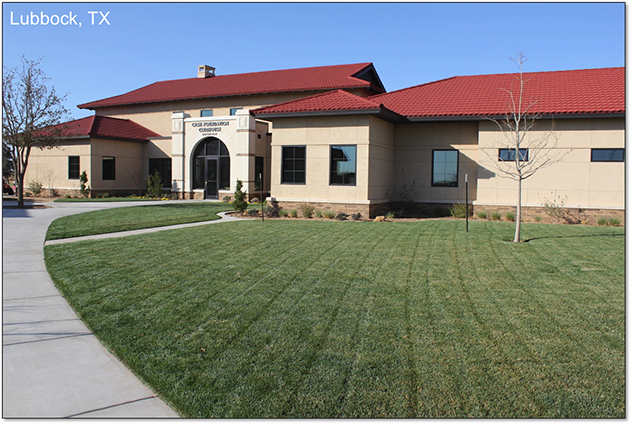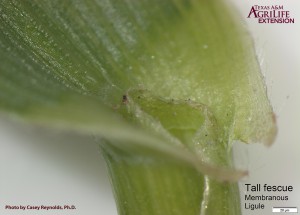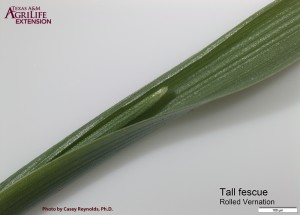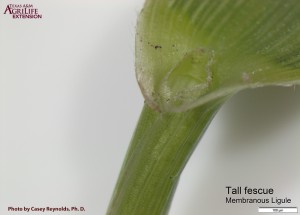Latin Name: Schedonorus arundinaceus (Schreb.) Dumort
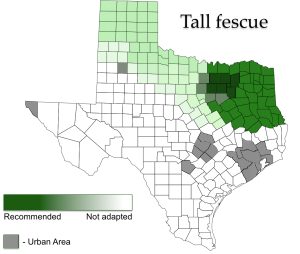
Growth Habit: Bunch-type
Vernation: Rolled
Leaf: Broad, flat; Ridges on upper surface and smooth on lower surface; Prominent midrib on lower surface
Ligule: Membranous, truncate
Auricles: Short, blunt, pubescent
Inflorescence: Panicle
Description: Tall fescue is a coarse-textured, cool-season turfgrass with dark green color and a bunch-type growth habit. Relative to other cool-season grasses, its superior heat and drought tolerance make it adapted for use in north Texas where warm-season grasses may struggle with winter injury. Like other cool-season species, it also performs well in shade and is used as a component of cool-season seed mixtures with Kentucky bluegrass, perennial ryegrass, and/or annual ryegrass. However, like all cool-season grasses its lack of heat and drought tolerance do not make it a widely planted turfgrass in Texas.
Strengths: Shade tolerance, cold tolerance, dark color, and rapid establishment
Weaknesses: Poor heat and drought tolerance, disease incidence
Recommended Mowing Height: 2.5 to 4 inches
Recommended Mowing Frequency: Weekly using a rotary mower
Fertilization Requirements: 2 to 4 lbs N per 1,000 ft2 per year. Single application rates should range from 0.5 to 1 lb of N per 1,000 ft2 applied during the spring and fall growing season.
| Tall fescue Varieties Available in Texas | ||
| Variety | Latin Name | Availability |
| Many available | Schedonorus arundinaceus (Schreb.) Dumort | Seed/Sod |
